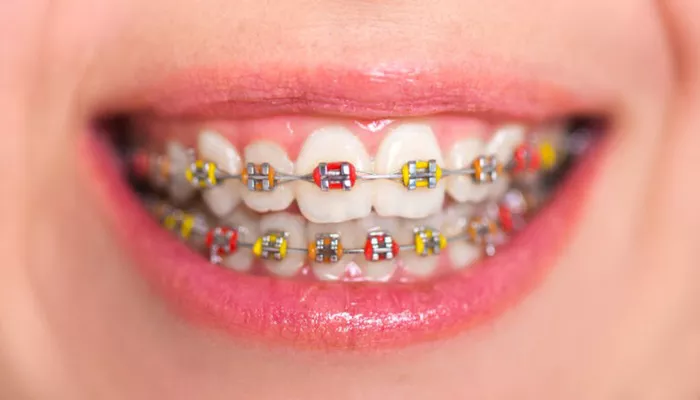When it comes to orthodontic treatment, one common question many patients have is whether they need to remove their wisdom teeth before getting braces. Wisdom teeth, also known as third molars, typically emerge in late adolescence or early adulthood. Understanding the relationship between wisdom teeth and braces can help you make informed decisions about your dental health.
Understanding Wisdom Teeth
Wisdom teeth usually appear between the ages of 17 and 25. These teeth are located at the back of the mouth, one in each quadrant. For some individuals, wisdom teeth grow in without any issues, while for others, they can cause various complications.
Common Issues with Wisdom Teeth
Impaction: Wisdom teeth can become impacted if there is not enough space in the jaw for them to emerge properly. This can lead to pain, swelling, and infection.
Crowding: If the jaw is too small to accommodate the wisdom teeth, they can push against neighboring teeth. This can lead to misalignment and crowding, potentially complicating orthodontic treatment.
Cavities and Gum Disease: Wisdom teeth are located at the back of the mouth, making them difficult to clean. This can increase the risk of cavities and gum disease, especially if they are partially erupted.
The Role of Orthodontics
Orthodontic treatment aims to correct misaligned teeth and jaws. Braces are commonly used to apply gentle pressure to the teeth over time, gradually shifting them into the desired position. The timing and effectiveness of braces can be influenced by the presence of wisdom teeth.
see also: Which Wisdom Teeth Come in First?
Assessing Your Wisdom Teeth
Before beginning orthodontic treatment, your orthodontist will typically assess the position and condition of your wisdom teeth. This assessment usually involves:
Dental X-rays: These images provide a clear view of the positioning of your wisdom teeth and whether they are impacted.
Clinical Examination: Your orthodontist will examine your mouth and teeth for signs of impaction, crowding, or other issues.
Reasons for Removing Wisdom Teeth Before Braces
In some cases, your orthodontist may recommend removing your wisdom teeth before getting braces. Here are several reasons why this might be necessary:
1. Preventing Crowding
If your wisdom teeth are likely to cause crowding, removing them can create more space in the mouth. This can simplify the orthodontic process and improve the alignment of your other teeth.
2. Reducing the Risk of Impaction
If there is a chance that your wisdom teeth will become impacted, it may be advisable to remove them beforehand. Impacted wisdom teeth can lead to complications during orthodontic treatment.
3. Improving Oral Hygiene
Removing wisdom teeth can enhance your ability to maintain good oral hygiene. This is crucial during orthodontic treatment when proper cleaning is essential to prevent cavities and gum disease.
4. Simplifying Treatment Time
In some cases, removing wisdom teeth before braces can lead to a more straightforward treatment process. If your wisdom teeth are removed, your orthodontist can focus on straightening your other teeth without the complications that wisdom teeth may introduce.
When You Might Not Need to Remove Wisdom Teeth
While there are valid reasons to remove wisdom teeth before getting braces, there are also situations where it may not be necessary:
1. Adequate Space
If your jaw has sufficient space for your wisdom teeth to emerge without causing crowding, your orthodontist may decide that removal is not required.
2. Healthy Wisdom Teeth
If your wisdom teeth are healthy, fully erupted, and do not pose a risk of complications, your orthodontist might recommend keeping them. This is particularly true if they can be properly maintained and cleaned.
3. Monitoring Growth
In some cases, your orthodontist may choose to monitor the development of your wisdom teeth during orthodontic treatment. If no issues arise, removal may not be necessary.
The Consultation Process
To determine the best course of action for your wisdom teeth and orthodontic treatment, it is essential to have a thorough consultation with both your orthodontist and dentist. This process typically includes:
Comprehensive Examination: Both professionals will evaluate your dental health and the positioning of your wisdom teeth.
Discussion of Options: You will discuss the potential benefits and risks of removing your wisdom teeth versus keeping them.
Treatment Planning: Based on their assessments, your orthodontist will develop a tailored treatment plan that considers your unique dental needs.
Preparing for Wisdom Teeth Removal
If your orthodontist recommends removing your wisdom teeth before getting braces, here are some steps to prepare for the procedure:
1. Schedule a Consultation
Meet with your dentist or oral surgeon to discuss the procedure, recovery time, and any concerns you may have.
2. Understand the Procedure
Learn about the type of anesthesia that will be used and what to expect during the extraction process. Most wisdom teeth removals are done under local or general anesthesia.
3. Plan for Recovery
Make arrangements for recovery after the procedure. You may need someone to drive you home, and it’s wise to plan for a few days of rest.
4. Follow Pre-Operative Instructions
Your dentist will provide specific instructions to follow before the procedure, such as fasting or adjusting medications.
Recovery After Wisdom Teeth Removal
Recovery time after wisdom teeth extraction can vary, but here are some common experiences:
1. Swelling and Discomfort
Swelling and discomfort are normal after surgery. Ice packs can help reduce swelling, and your dentist may prescribe pain medications.
2. Diet Adjustments
For the first few days, stick to soft foods and avoid anything that requires chewing. Gradually reintroduce solid foods as you heal.
3. Oral Hygiene
Maintaining oral hygiene is essential during recovery. Follow your dentist’s instructions for cleaning your mouth and caring for the extraction sites.
Conclusion
In summary, whether you need to remove your wisdom teeth before getting braces depends on several factors, including the position of your wisdom teeth, the size of your jaw, and your overall dental health. Consulting with your orthodontist and dentist is crucial to determine the best approach for your individual situation.
Related topics:

